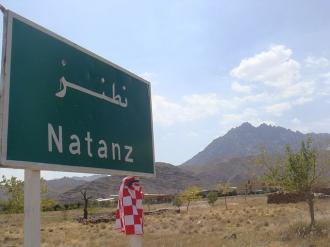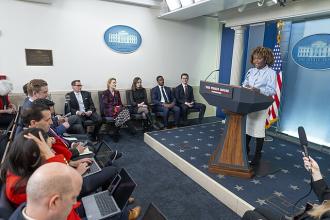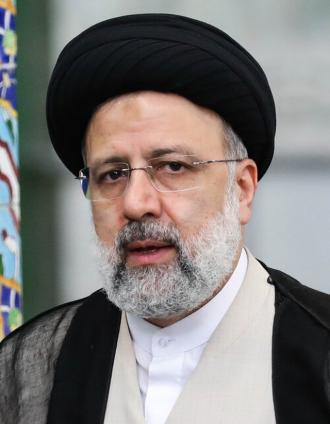From the moment Rosh Hashana is done we hit the ground running, initiating the Ten Days of Repentance by fasting, commemorating the tragic death of Gedaliah ben Achikam.
Although this fast day is observed during this time due to it having occurred historically in this period, there seems to be a more integral connection to these days of repentance.
The Pesikta teaches us that from the 17th of Tammuz there is a sequence of Haftoros read, ‘Three of Punishment, Seven of Consolation, and Two of Repentance’.
The Bais Yosef says the first one of Repentance is the Haftora we read on Tzom Gedaliah, Dirshu Hashem B’Himatzo... The second is that of Shuva Yisrael ad Hashem... which we read on Shabbos Shuva.
The reading of Dirshu and its summons to ‘seek Hashem when He can be found’, is read on every public fast day. But these words have even greater significance during these ten days when G-d avails Himself to us more so than during the rest of the year.
So are the events surrounding Gedaliah’s death merely coincidental to the reading of this passage, or might there be a deeper connection and message in that story that is relevant to this propitious time?
After the destruction of the Temple and the inhabitants of Eretz Yisrael by Nevuchadnezzar, Gedaliah was appointed by the Babylonians as governor over the small remnant of Jews who were permitted to remain in the Land. We are told that Yishmael Ben Nesanyah, a descendant of the Davidic House and aspirant to its throne, and his men, plotted to assassinate Gedaliah and his court. Yochanan Ben Kareyach, warns Gedaliah about the death plot but is rebuffed and accused of lying. After the terrible deed was carried out, Yochanan rallies the soldiers, killing Yishmael, avenging the cruel and nationally devastating assassination.
Fearing Babylonian retribution, Yochanan, his men, and the entire nation approach Yirmiyahu, in all sincerity, beseeching him to ask G-d if they should flee to Egypt or can they remain safely in Eretz Yisrael. Yirmiyahu conveys G-d’s words to them, “If you remain in this land, I will build houses for you and not destroy them, I will plant and not uproot because I have regretted the evil I have caused you. Do not fear the Babylonians because I am with you to save you from their hands; and I will grant you mercy and return you to your land!”
Despite this great message of hope, Yochanan Ben Kareyach accuses Yirmiyahu of speaking lies, suggesting he is merely conspiring with the Babylonians to kill them and exile them to Bavel.
They immediately depart to Egypt, ending the last remaining true presence of Jews in their land.
Years later during political upheaval in Egypt, Nevuchadnezzar took advantage and invaded and destroyed the land, with most of the Jewish refugees perishing in the war.
Three tragic figures are displayed before for us.
The pious Gedaliah, whose unbalanced pursuit of piety prevented him from appropriately suspecting Yishmael, and act accordingly in protecting himself.
The murderous Yishmael, spurred by his jealousy over Gedaliah’s appointment in place of the more worthy descendant of David.
The loyal Yochanan, who swiftly brought justice to Yishmael, yet could not be swayed from his presumption that the Babylonians could be trusted, despite the assurance of the great prophet who spoke in the name of G-d.
Maimonides writes that with this tragedy the גחלת ישראל, last Jewish ember in Eretz Yisrael, was extinguished, leaving the land bereft of any Jewish presence.
The multiple errors altered history forever.
There are three impediments to initiating a personal program of Teshuva.
One relates to one’s obligation to G-d. The second to interpersonal relationships. The third to our responsibility to ourselves.
Firstly, one must be convinced that what he did is wrong.
The Mesilas Yeshorim elaborates on the principle of Mishkal HaChasidus, balancing piety, utilizing Gedaliah as an example of one whose piety was misplaced. He writes how ‘the inclination can convince one that good things are bad, and sins are actually mitzvos.’
One must realize that serving G-d requires honesty, precision and trust in carrying out G-d’s will without any taint of self-interest.
We approximate that we have it right, satisfying ourselves that we — more or less — got it right, and convincing ourselves that it is sufficient.
In areas pertaining to our responsibility towards others, we must accept that even subtle character flaws that do not seem to impinge on how we act towards others, can fester and grow, building up resentment that bring us to reactions as far reaching as murder.
Lastly, we must acknowledge the need to transform not only our actions, but our attitudes we stubbornly refuse to let go of, out of convenience and comfort. We get stuck on what we believe is correct refusing to shed the many premises we blindly accept as dogma and truth.
Gedaliah’s imprecision — Yishmael’s fatal flaw of jealousy — Yochanan’s refusal to alter his preconceptions, extinguished any possibility of rebuilding the land and sparking its hopes.
The Haftorah of Dirshu summons us: To seek Hashem... not ourselves — Let the wicked one forsake his way... not simply to refrain from the action but more importantly his ‘way’, his flawed character, — and the iniquitous man, his thoughts... to shirk our misguided and biased presumptions.
Rav Moshe Dovid Valli points out that image of a burning coal, a גחלת, a coal, is used to represent the last vestige of hope, because it is numerically equivalent to the word אמת, truth.
Until we are ready to accept an unbiased truth, willing to admit how vulnerable we truly are, and commit to a truth beyond human perception — the process of Teshuva has no fertile ground to grow on.
If we do not act swiftly, the ember will extinguish, altering our destiny.
אם לא עכשיו אימתי — If not now, when?
Return, O Israel, to Hashem, your G-d...
באהבה,
גמר חתימה טובה,
צבי יהודה טייכמאן















